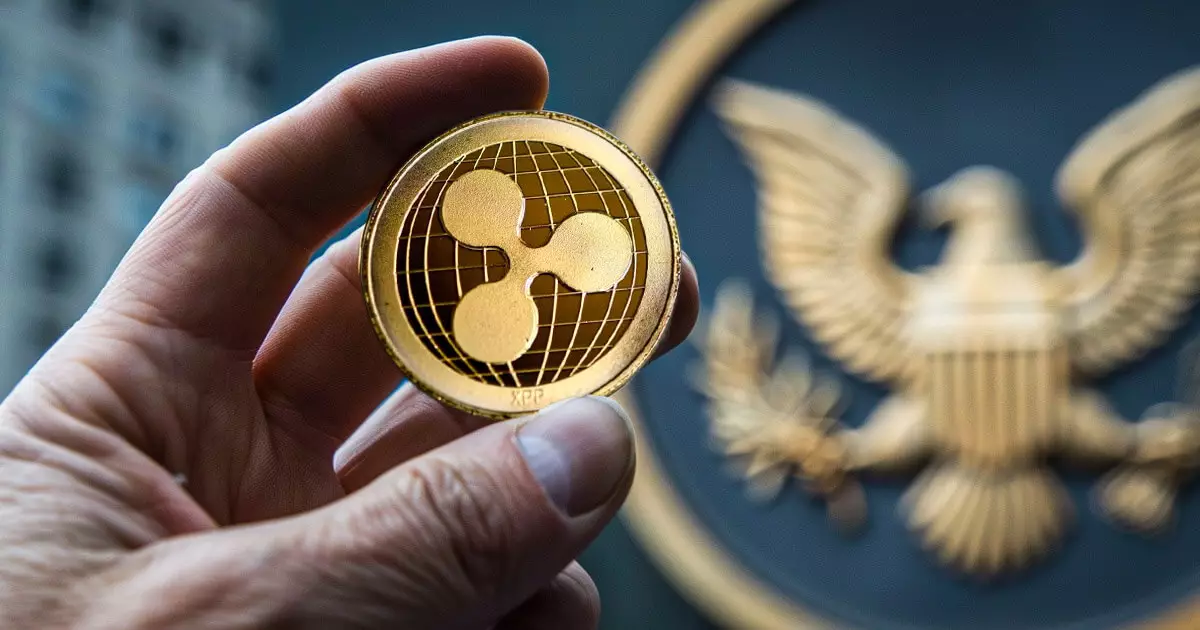The legal tussle between Ripple Labs and the U.S. Securities and Exchange Commission (SEC) has suffused the cryptocurrency realm with a sense of anticipation and controversy since its inception in December 2020. As they inch further into the labyrinth of litigations, Ripple Labs has recently filed a notice of cross-appeal with the Second Circuit Court, escalating the stakes of a high-profile case that already sees the SEC attempting to overturn a ruling favoring Ripple’s retail transactions with its XRP token. This article delves into the implications of both parties’ appeals, the legal ramifications, and the potential impact on the cryptocurrency industry.
At the heart of this legal drama is a question fundamentally crucial to the future of cryptocurrency regulation: Do sales of cryptocurrencies like XRP constitute offerings of securities? The SEC initially accused Ripple of selling unregistered securities amounting to $1.3 billion through its XRP token, igniting a debate that resonates beyond Ripple alone. Ripple’s argument rests on a pivotal court ruling from July 2023, where U.S. District Judge Analisa Torres concluded that while institutional XRP sales were deemed non-compliant with securities regulations, programmatic sales to the general public were not categorized in the same way.
This nuanced ruling has prompted the SEC’s recent appeal, as they aim to challenge the legal interpretation surrounding retail transactions. Against this backdrop, Ripple’s cross-appeal focuses on contesting the $125 million civil penalty imposed for its institutional sales. Although this amount is significantly less than the SEC’s initial demand, it still represents a contentious point of negotiation, particularly for Ripple’s leadership, which proposed a mere $10 million penalty in previous discussions.
The proceedings are not merely legal formalities; they reflect the wider issues of regulatory clarity and stability in the rapidly evolving cryptocurrency landscape. Ripple’s Chief Legal Officer, Stuart Alderoty, articulates a sentiment echoed by many in the industry—a desire for definitive guidelines rather than what they perceive as a “regulation-by-enforcement” approach taken by the SEC under Chair Gary Gensler. This regulatory ambiguity creates an environment of uncertainty for crypto entrepreneurs and businesses, stymying innovation and deterring potential investments.
As the legal narrative unfolds, it raises critical questions regarding the classification of digital assets. If XRP sales to retail customers are excluded from the definition of securities, it could set a precedent that might safeguard similar cryptocurrencies against restrictive regulations. Conversely, should the SEC win its appeal, it may empower the commission to exert greater control over digital currencies, leading to implications that could impact a plethora of crypto ventures.
A Tipping Point for the Crypto Industry
The repercussions of this litigation extend far beyond Ripple. A seminal ruling in favor of Ripple could bolster calls for more lenient regulations, signaling to investors and developers that there’s room for growth within the cryptocurrency space. For instance, a favorable outcome might lead to a shift in how securities law is interpreted vis-à-vis blockchain technologies, encouraging more companies to enter this niche without the overbearing fear of regulatory backlash.
On the flip side, a win for the SEC could catalyze an unprecedented clampdown on the industry, in which many companies would likely reconsider their business models if faced with the prospect of similar legal challenges. Major players in the crypto sector are closely monitoring these developments, recognizing that the outcomes could alter the landscape of financial transactions permanently.
As both appeals merge into a singular narrative, the tension and anticipation surrounding the case grow palpable. Ripple’s cross-appeal serves as both a defensive maneuver and a proactive step to shape the discourse on cryptocurrency regulations. The legal intricacies encompass not just Ripple’s fate but also the broader future of digital currencies in the United States. The industry watches with bated breath, fully aware that the outcome may well script the next chapter in the regulatory narrative governing cryptocurrencies. In a realm notorious for rapid evolution, this legal battle stands as a testament to the significant crossroads at which the industry now finds itself.



Leave a Reply